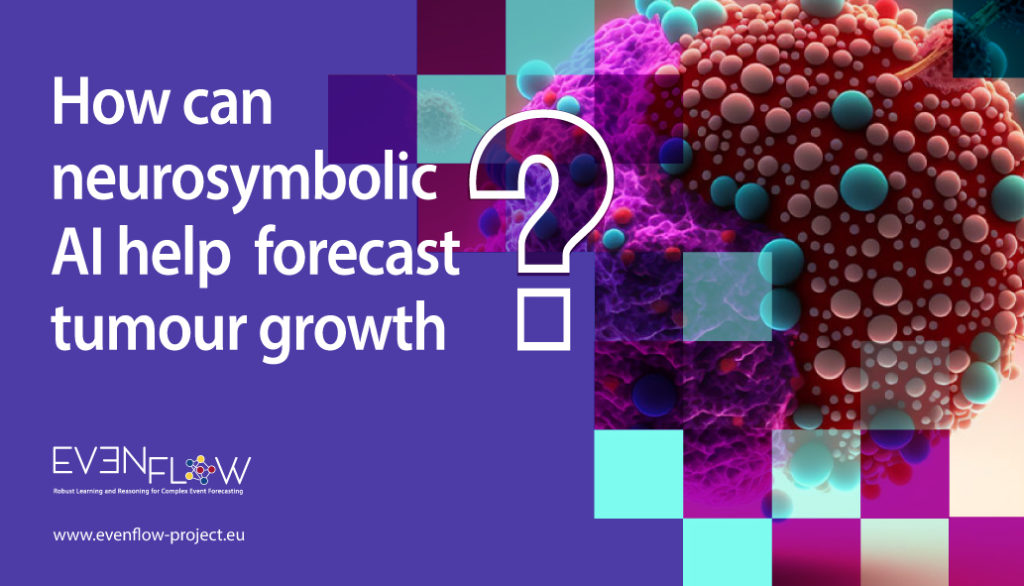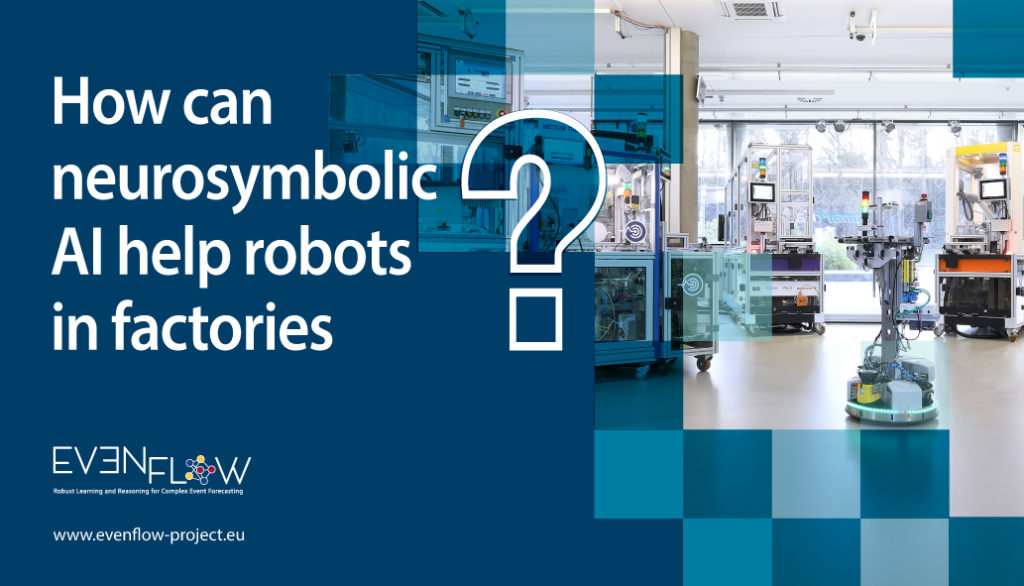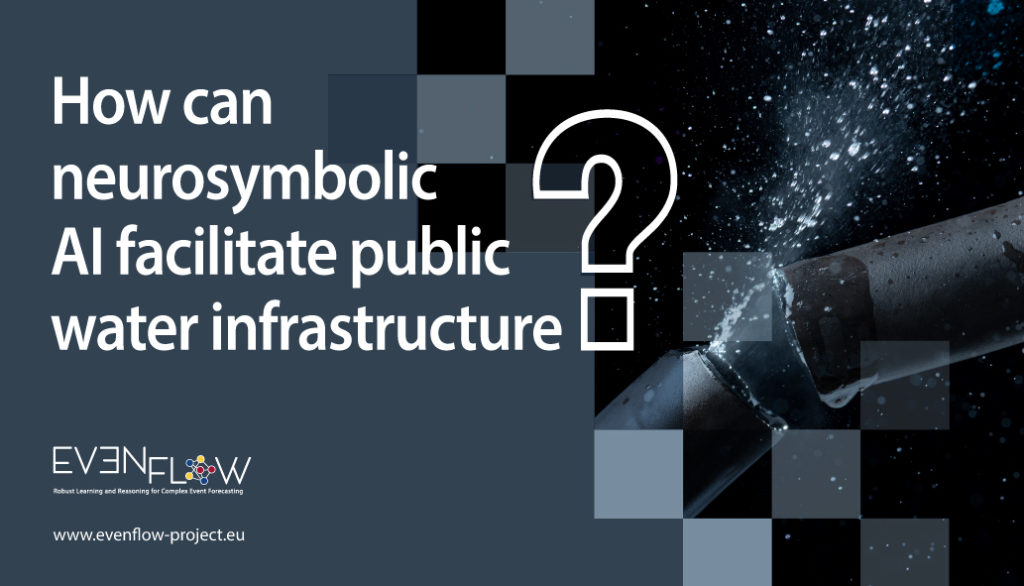Use Cases in a nutshell
A growing number of applications rely on AI-based solutions to carry-out mission-critical tasks, many of which are of temporal nature, dealing with ever-evolving flows of information. Crucial for mitigating threats and taking advantage of opportunities in such domains, is the ability to forecast imminent situations and critical complex events ahead of time. The EVENFLOW project works on developing hybrid learning techniques for complex event forecasting, which combine deep learning with logic-based learning and reasoning into neuro-symbolic forecasting models.
EVENFLOW conducts research work on three challenging use cases related to i) oncological forecasting in personalised medicine, ii) safe and efficient behaviour of autonomous transportation robots in smart factories and iii) reliable life cycle assessment of critical infrastructure.
Personalised Medicine

The EVENFLOW project has a special focus on Personalised Medicine, aiming to understand how tumours grow in different people. This understanding will help researchers find better and more personalised solutions for cancer treatment. Tumour growth is a complex and evolving process, starting from early stages and progressing to later ones. As the tumour grows, its molecular characteristics also change. To study these changes, data is collected at various stages of tumour growth. However, this data collection from patients is often incomplete, limited, and discontinuous. To overcome gaps in the data, EVENFLOW harnesses the power of special computer programs called deep generative models. These intelligent programs help piece together a continuous view of the changes that occur during tumour growth, much like connecting the dots in a puzzle. By utilising EVENFLOW’s advanced technology, researchers gain the ability to predict how a patient’s condition might change during cancer progression, much like predicting the weather. This valuable forecast will empower doctors to make informed decisions and offer personalised care to each patient, significantly improving their chances of overcoming the disease. In a nutshell, EVENFLOW acts as a personal guide for cancer treatment, assisting doctors in understanding how each patient’s tumour behaves. This way, treatments can be tailored to provide the best possible outcomes for each individual.
Industry 4.0

Autonomous robots are the future of factory automation, but they face big challenges navigating busy production floors. The European research project EVENFLOW aims to equip robots with advanced forecasting capabilities to avoid mishaps. The core innovation of EVENFLOW is developing methods to predict complex incidents before they occur. This could enable the preemptive avoidance of disasters, system failures and other problems across many domains. One application is making autonomous mobile robots (AMRs) in factories smarter and safer. Today’s AMRs rely on sensors to haul materials and connect workstations independently. However, their limited perception means they sometimes stall or collide with obstacles like other robots, objects or people – disrupting production.
The factory environment poses an additional challenge: massive streams of high-frequency sensor data. AMRs have constrained on-board computing to analyse this data flood in real time. EVENFLOW researchers are creating efficient predictive models that can distil the data and run on AMRs to forecast issues before they arise. By leveraging large datasets and simulations, EVENFLOW aims to model the complexity and give robots an intuition about when something is likely to go wrong. This technology could make AMRs much more reliable and safe, improving manufacturing productivity and quality.
Infrastructure Life Cycle Assessment

What if we could check, in real time, the health status of any water pipe in our underground network and be able to predict malfunctions and points that need to be maintained? In EVENFLOW we aim to utilize the sensor infrastructure in the public water pipe network and use our advanced complex event forecasting techniques to make accurate, reliable and explainable predictions.
Using this technology, the sensors in the pipes will be able to gather data regarding the healthy status of the pipes themselves (cracks, leakages, etc.) and regarding the fluid conditions (temperature, pressure, flow etc.) in real time. EVENFLOW’s AI algorithms will process them and provide timely predictions. The algorithms, through the use of neurosymbolic learning and other techniques developed in EVENFLOW, will not only provide high-quality predictions but will also be able to shed light on the reasons behind them. This will help to optimise the maintenance and management policies and activities of the public infrastructure operator, especially in trenchless interventions and reduction of maintenance costs.


